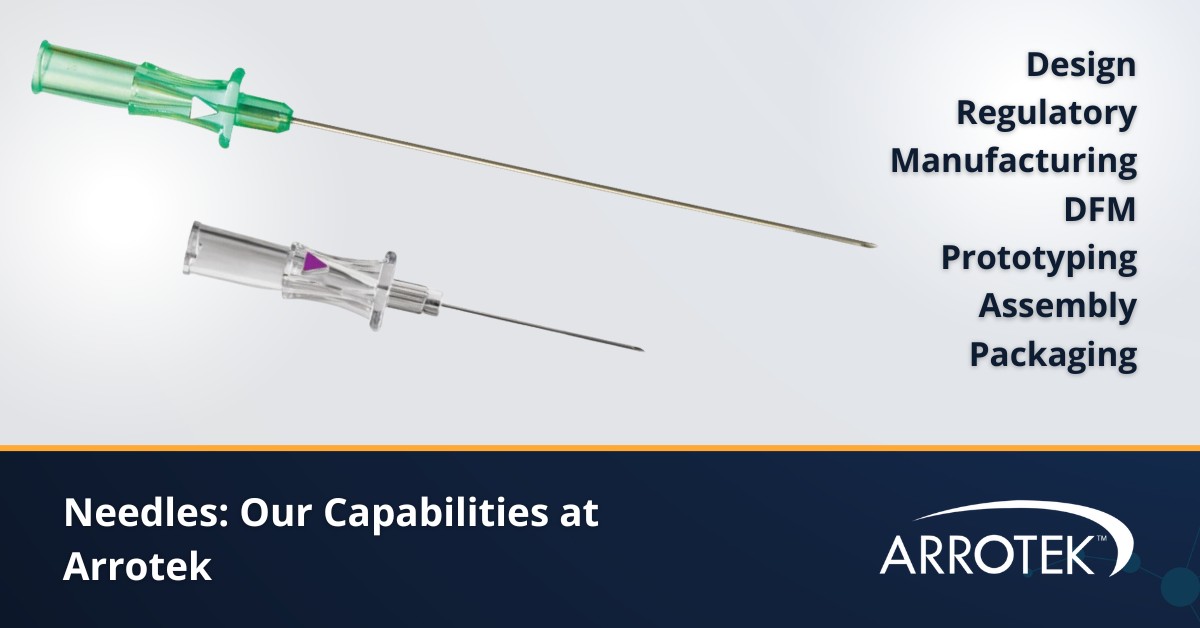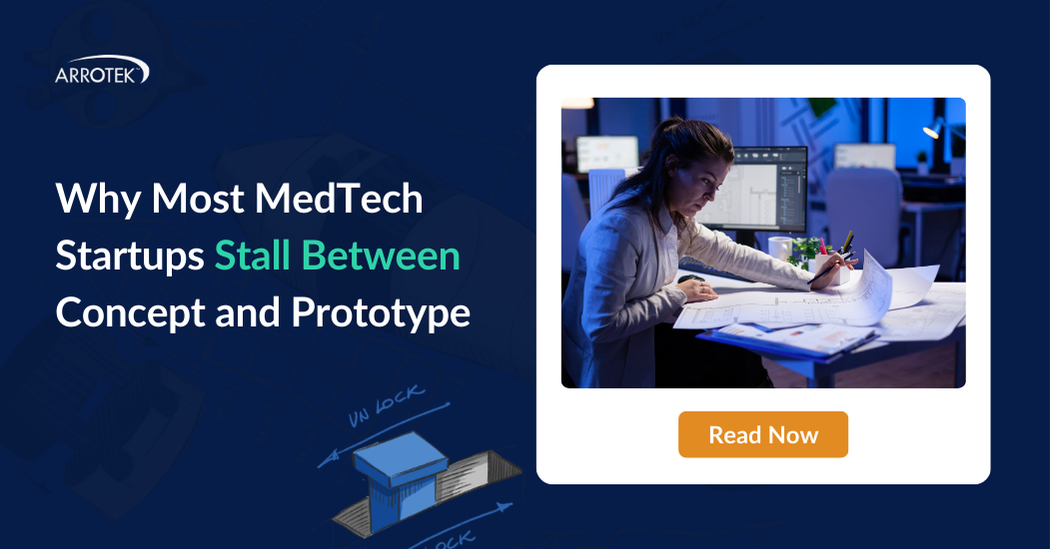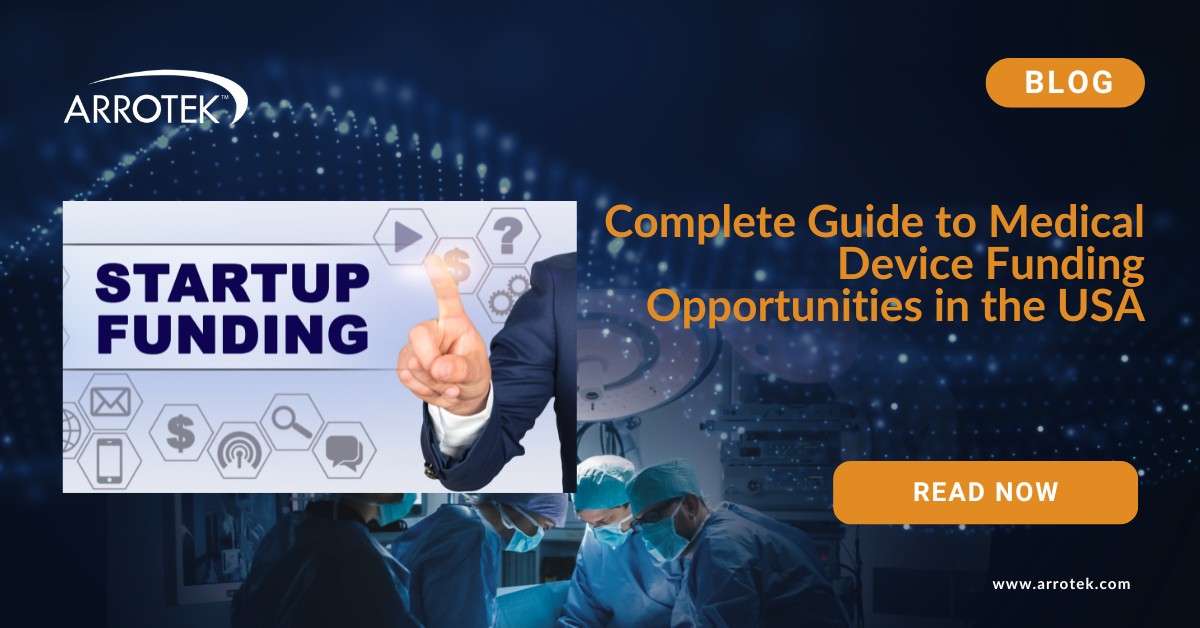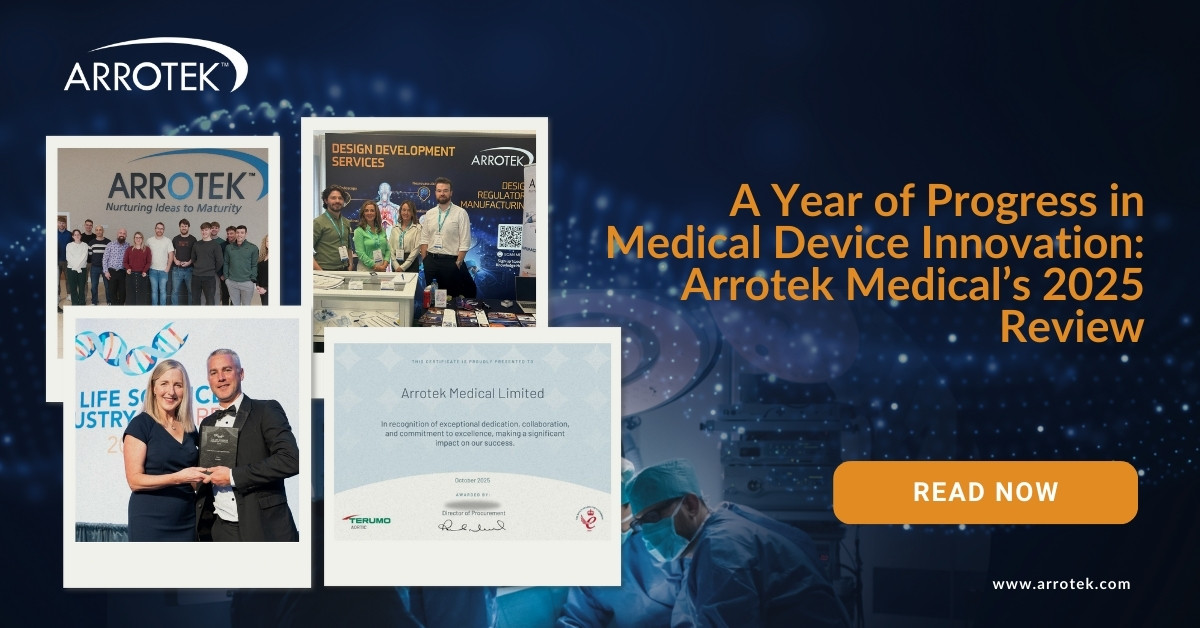There are multiple components that make up modern minimally invasive medical device products. Among the most important are needles, cannulas, and stylets. Steel components like this need to be specifically designed to optimise the performance of the device and ensure patient safety. They also need to be precision manufactured to ensure consistent, accurate, and repeatable production.
At Arrotek, we have extensive experience designing, customising, specifying, improving, and manufacturing needles, cannulas, stylets, and similar steel components. Our capabilities include:
- Handling a specific aspect of your project, taking on the entire project, or anything in between.
- Developing products that feature high-precision steel components, including products that are used in a range of procedures across multiple medical specialties.
- A wide range of manufacturing abilities with the latest equipment and a highly skilled team.
Whether you are at the start of the development process for your product, you need specialist expertise, or you have a requirement for additional capacity to augment your in-house team, we can help at Arrotek.
Complete Service Offering
At Arrotek, we’ve got the experience, capabilities, and capacity that you need. Our specialist expertise covers needles, cannulas, stylets, and similar steel components, as well as catheters and other minimally invasive medical devices. Furthermore, our complete service offering means we can help at any stage of your project:
- Design and development – defining user requirements, concept generation, concept development, stage 1 prototype production, concept refinement, and stage 2 prototype production. A design history file will be created and maintained throughout these stages.
- Regulatory – creating and updating manufacturing documentation and other essential documentation, as well as developing the product’s packaging, labelling, and sterilisation procedures. We also offer biocompatibility testing.
- Manufacturing – tool design, tool fabrication, design verification, design transfer, ongoing production, and assembly.
Medical Specialties
- Interventional radiology and endovascular procedures – introducer needles, coaxial needles, biopsy needles, drainage needles, aspiration biopsy needles, and more.
- Interventional oncology – core biopsy needles, aspiration biopsy needles, brachytherapy needles, RF probes, ablation needles, bone marrow aspiration needles, and more.
- Non-cardiovascular access devices – including Veress and Pneumo needles.
- Pain management – nerve stimulators, denervation needles, RF probes, spinal needles, Tuohy needles, and more.
- Spine and biologics – spinal needles, bone marrow aspiration needles, K-wires, Steinmann Pins, and more.
Technologies, Processes, & Equipment
Manufacturing
- CNC machining – accurately, efficiently, and cost-effectively machining intricate and complex parts that have tight tolerances.
- Electro-chemical cutting and grinding – for the machining of difficult-to-machine materials, thick or thin, without the risk of damage or a requirement for deburring.
- Electrical discharge machining – to accurately and consistently form holes and other shapes in the steel components of medical device products.
- Needle point grinding – to produce needle points of any geometry with the highest degree of precision and accuracy.
- Injection and insert moulding – standard injection moulding as well as over moulding, where one component is moulded over another to create what is effectively a single part.
- Laser processing – non-contact processes for cutting and welding metal components, in addition to laser engraving.
- Metal forming – various techniques to accurately and repeatably produce medical devices and components, including tube and wire bending, flaring, swaging, ball welding, and more.
- Other metal machining and fabrication capabilities – other metal machining and fabrication capabilities in addition to those above, including catheter tipping, catheter flaring, ECG notching, automated grit blasting, leak testing, ultrasonic welding, buffing, and soldering.
- Cleaning and finishing – producing the perfect finish for your medical device product through techniques such as tumbling, electro-etching, electro-polishing, spin drying, oven drying, and automatic passivation.
- Assembly and packaging – a range of options to suit the requirements of your product, including adhesive bonding, mechanical assembly, RF welding, ultrasonic welding, soldering, and laser welding.
- Sterilisation coordination – our turnkey solutions can include supplying you with a fully manufactured, packaged, labelled, and sterilised medical device product.
DFM
We follow design for manufacturing (DFM) guidelines and practices to optimise the design of new medical device products for efficient and cost-effective manufacturing. The process of DFM involves designing medical devices with a focus on ease of production, assembly, and testing, while also taking into account sterilisation, packaging, labelling, and traceability considerations, as well as the materials, tools, and processes used in manufacturing.
Prototyping
The launch of a new product is a significant undertaking, and the rapid creation of prototypes is a crucial part of the development process. Our skilled and experienced engineering team, advanced equipment, adaptable production processes, and well-equipped R&D lab enable us to efficiently decrease turnaround time during the production of prototypes for evaluation.
Human factors design
Designing medical device products that take into account the physical, cognitive, and behavioural capabilities and limitations of the intended users. It’s a process that also considers the situations and circumstances under which the product will be used.
Human factors design considers factors such as ergonomics, accessibility, usability, and user experience. It seeks to design products that are easy to use, efficient, and safe (for both the patient and physician), and that minimize the risk of human error and accidents.
Regulatory
We offer a wide range of regulatory support services, particularly in relation to FDA and EU regulatory approval processes. Our team has extensive knowledge of the 510(k) submission process for products that will be marketed in the US, as well as EU MDR for products to be sold in the EU. We also offer clinical trial support, and we operate an ISO-certified quality management system.
Speak to An Expert Today
We can help progress your idea for a medical device product through the development process, as well as offering regulatory and manufacturing services and support. To discuss your requirements for needles, cannulas, or similar steel components (in complete confidence), get in touch with us at Arrotek today.
Simply complete the form below and a member of our team will get back to you to arrange a free consultation.





